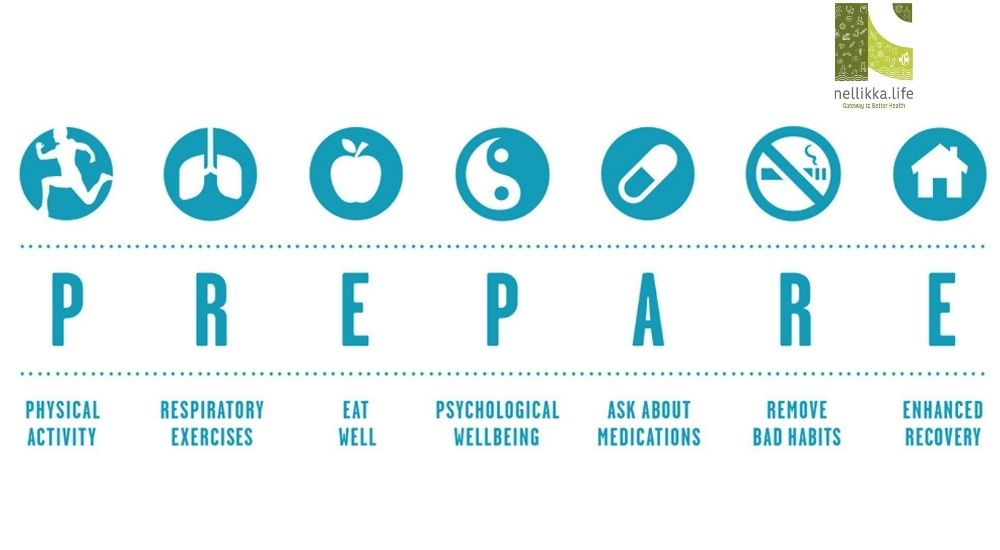Prehabilitation: Preparing Your Body for Surgery Before It Happens

Introduction: Why Wait Until After Surgery to Heal?
When people hear the word “rehabilitation,” they often think of recovery after surgery. But what if we told you that healing can start before you even enter the operation theatre?
Welcome to the world of Prehabilitation — a proactive, scientifically-backed approach that prepares your body and mind before surgery or major treatment, helping you recover faster, experience fewer complications, and feel more in control of your health journey.
What is Prehabilitation?
Prehabilitation (often called “prehab”) refers to the process of enhancing a patient’s functional capacity before surgery through physical, nutritional, and psychological interventions.
Just as athletes train before competitions, patients can “train” their bodies and minds to handle the stress of surgery. The goal? Enter surgery stronger and come out of it with a smoother recovery curve.
The Science Behind Prehabilitation
Recent studies have shown that people who engage in prehab:
- Recover faster post-surgery
- Have fewer post-operative complications
- Shorten their hospital stays
- Improve long-term physical function
A study in JAMA Surgery (2014) found that elderly patients undergoing abdominal surgery who participated in prehabilitation had significantly better post-surgery outcomes compared to those who didn’t.
A 2020 review in The Lancet highlighted that prehab is particularly effective before cancer surgeries, orthopedic operations (like knee or hip replacement), and heart surgery.
What Does Prehabilitation Involve?
Prehab programs are typically multidisciplinary, addressing three pillars:
1. Physical Conditioning
- Tailored exercises (strength, cardio, flexibility)
- Enhances endurance and muscle strength
- Improves lung and heart function
- Prepares joints and tissues for better healing
Example: A person preparing for knee replacement might do leg strengthening exercises to reduce post-op weakness.
🥦 2. Nutritional Optimization
- Focus on balanced diets, protein intake, and hydration
- Helps maintain muscle mass and immunity
- Reduces risks of wound infection and delayed healing
Example: Cancer patients may be advised to build nutritional reserves before starting chemo or radiation.
🧠 3. Psychological Preparation
- Stress management techniques (mindfulness, breathing)
- Counselling or therapy to reduce anxiety
- Education about the procedure
Example: A patient undergoing heart surgery may be guided to practice relaxation methods to regulate anxiety and heart rate.
Who Should Consider Prehabilitation?
Prehabilitation is beneficial for:
- Seniors undergoing joint replacements or cardiac surgeries
- Cancer patients before surgery, chemotherapy, or radiation
- People with chronic diseases (diabetes, obesity, lung conditions)
- Athletes recovering from injury or planning orthopedic procedures
Even healthy individuals can benefit from enhanced surgical readiness and recovery confidence.
When Should Prehab Start?
Ideally, 3–6 weeks before surgery is optimal for noticeable improvement. However, even a few days of targeted prehab can provide benefits.
Benefits of Prehabilitation
Faster recovery
Less pain after surgery
Fewer complications
Reduced hospital stay
Lower healthcare costs
Improved mental readiness and confidence
Common Myths About Prehabilitatio
“I’m too old for exercise before surgery.”
Reality: Prehab is safe and adapted to all ages and conditions.
“It’s only for athletes.”
Reality: Anyone preparing for a major procedure can benefit from it.
“It’s the same as physiotherapy.”
Reality: Physio is part of prehab, but it also includes nutrition and psychological support.
Real Life Example
Lakshmi, 62, from Kochi, was scheduled for a total knee replacement. Her doctor advised 4 weeks of prehab: leg strengthening, breathing exercises, and a protein-rich diet. After surgery, she was up and walking with less pain than expected, and her recovery was quicker than others in her ward.
Train Before You Heal
Prehabilitation isn’t about avoiding surgery — it’s about taking control of your health story. By investing in your physical, nutritional, and emotional well-being before a major procedure, you’re not just preparing for a better surgery — you’re laying the foundation for a stronger, more confident recovery.
If you or a loved one is facing surgery, ask your doctor about prehab. It could be the smartest step you take toward healing — before the healing even begins.




